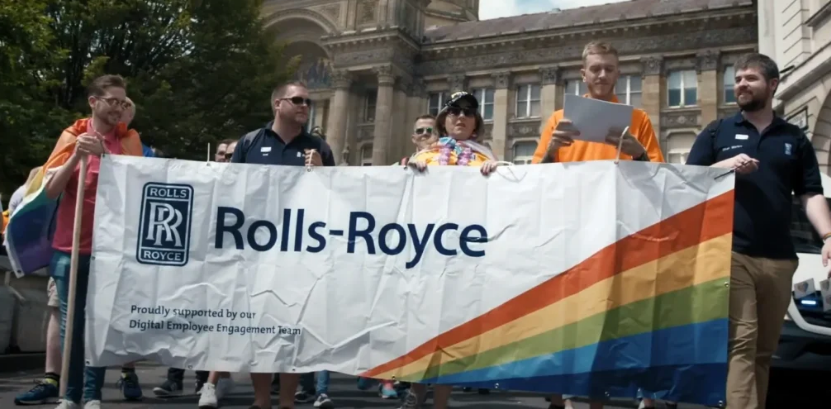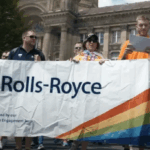Rolls-Royce has announced significant cuts to its internal diversity, equity, and inclusion (DEI) initiatives, citing compliance with recent U.S. legislation and growing political pressure from the Trump administration.
The FTSE 100 aerospace and defence giant, which employs 43,000 people worldwide, told staff it would no longer provide corporate funding or internal visibility for employee inclusion networks, such as Prism, its LGBTQ+ group. While employees may continue to meet informally, these groups will lose access to company resources, intranet promotion, and office space for events.
The decision was communicated to staff last month in a joint message from Natasha Whitehurst, head of diversity, inclusion and belonging, and Adam Riddle, who leads the company’s North America operations. In place of the identity-specific groups, the company is launching a broader “employee voice network” that will be open to all staff.
Rolls-Royce said the move was necessary to comply with anti-DEI legislation in the United States, where it employs around 6,000 people and generates a third of its £19 billion in annual revenue. The company also holds significant defence contracts with the U.S. government, including work on engines for military aircraft such as the C-130 Hercules and B-52 bomber.
In a statement, the company said: “We support all our colleagues to be at their best, ensuring we live by our behaviours and drive a culture of high performance and engagement. We regularly review our policies and approach to ensure we achieve this outcome, while complying with all legal requirements in the jurisdictions in which we operate.”
All references to DEI networks have since been removed from Rolls-Royce’s corporate website.
The move places Rolls-Royce among a growing number of UK multinationals adjusting their diversity messaging in response to U.S. political shifts. Pharmaceutical giant GSK has recently taken similar steps, removing mentions of “diversity” from its online platforms, while advertising firm WPP has dropped DEI language from annual reports and executive pay criteria.
This trend comes amid a broader backlash in the U.S. against corporate DEI initiatives, particularly in Republican-led states, where new laws have restricted diversity programmes in public institutions and in firms with government contracts.
The shift marks a notable change in tone from just a year ago, when Rolls-Royce CEO Tufan Erginbilgic praised employee networks as key to building belonging. “They are role models who bring us together and help us learn,” he said in 2024.
Critics argue that applying U.S. legal constraints globally could undermine inclusion efforts in regions where DEI remains a policy priority. As pressure mounts from both sides of the Atlantic, companies like Rolls-Royce now face a complex balancing act between compliance, company culture, and employee expectations.








